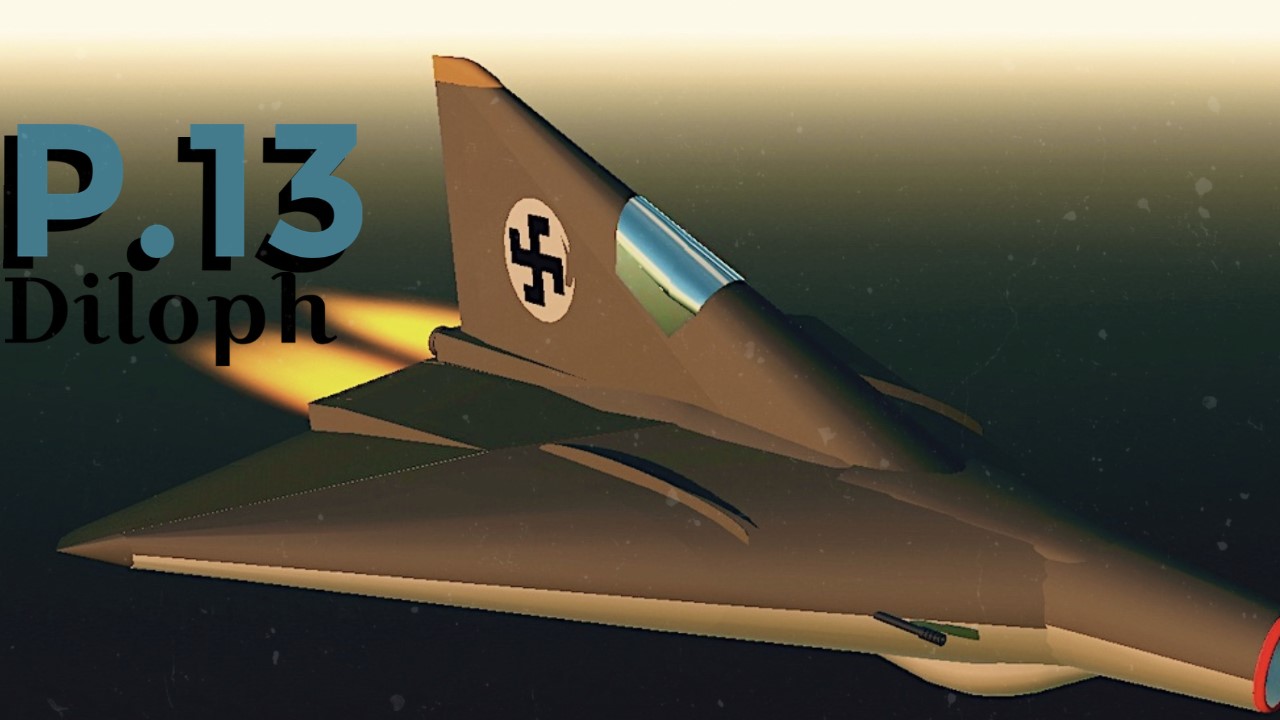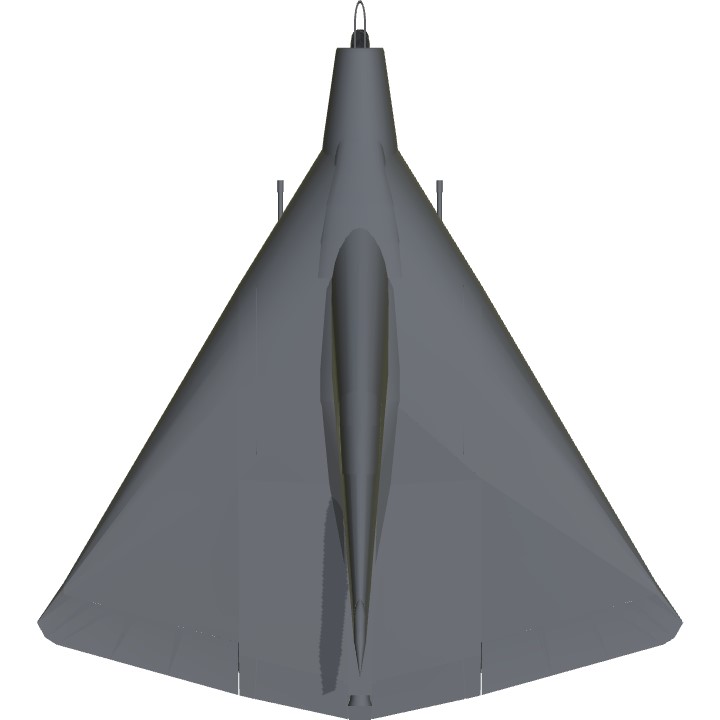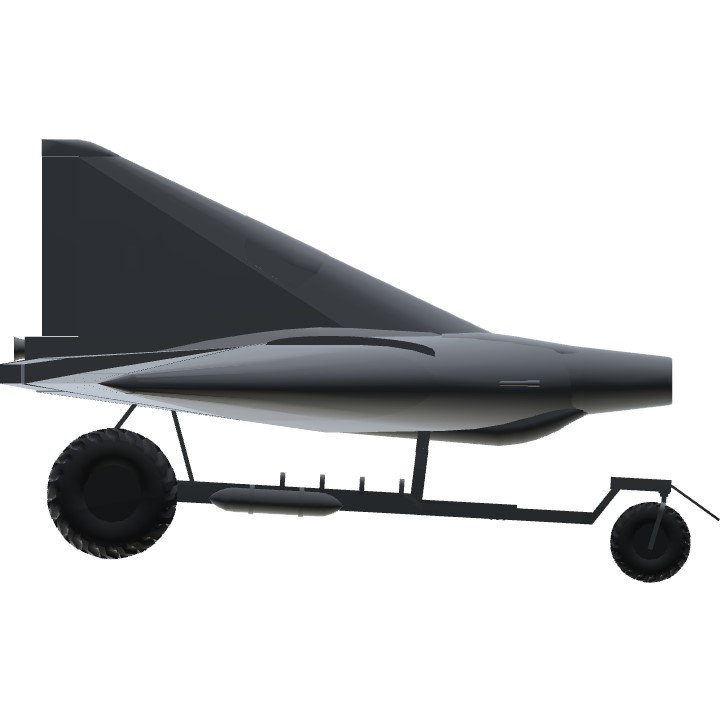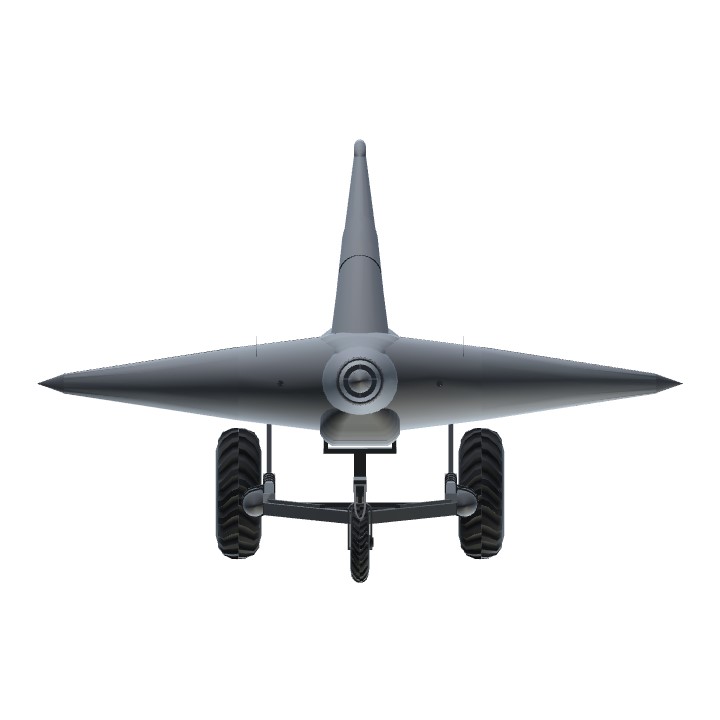Welcome!
This was a quite old build that I just finished
the insignia on the tail isn’t glitched, it is just due to the stupud screenshot system
Controls
TRIM-trim
Press AG-1 while taking off to sis connect plane from carriage thing
Wiki
The Lippisch P.12, P.13a and P.13b were related design projects for a ramjet-powered delta wing interceptor aircraft studied in 1944 by German designer Alexander Lippisch. The P.12 and P.13a were unarmed, relying on reinforced wings to ram its opponent. The P.13a and b were to be powered by powdered coal. The DM-1 was a full-size glider, flown to test the P.12/13a low-speed aerodynamics.[1] The design series were unrelated to the earlier P.13 produced by Messerschmitt's Lippisch design office.
During 1942, while still working on the Messerschmitt Me 163 rocket fighter, Alexander Lippisch developed a sharply-swept, leaf-shaped delta wing which he believed was capable of supersonic flight. Out of this and subsequent development of the P.11/Delta VI "power wing" through 1943 and early 1944, he conceived the idea of a hollow delta wing with its interior shaped like a ramjet duct. As an interceptor fighter it would achieve supersonic speeds but would carry no armament. Instead it would be heavily reinforced and would ram its opponent. Initially conceived as a disposable machine with the pilot bailing out at the end of the mission, a landing skid was later added. Launch to ramjet operational speed would be via catapult and/or booster rockets.[2]
The resulting design was initially assumed to use conventional liquid fuel and designated the P.12. But Lippisch had also become convinced of the benefits of solid fuel for short-duration high-speed flight and adopted this power source as the P.13. The design of both types then proceeded in parallel.[1]
The solid-fuel powered P.13 was one of several distinct Lippisch design studies to be so designated and became identified as the P/13a. It underwent much the same variations of form as the P.12, being presented in a brochure with the large fin and integral raised cockpit, and with an articulated, double-hinged landing skid. The wing trailing edge is angled slightly forwards and the downturned tip surfaces have been discarded. The outer wing sections could be folded upwards for transportation by rail.[1]
A variant with a rectangular canard foreplane was wind-tunnel tested. This was not really consistent with ramming and there are other indications that conventional gun armament was being considered.[1]
As conventional fuels were in extremely short supply by late 1944, Lippisch proposed that the P.13a be powered by coal. Lippisch soon came to conclude that this might even be more effective than liquid fuel, as the location of combustion was more precisely controllable. Initially, it was proposed to employ a wire-mesh basket holding even-sized granules of brown coal, placed in the lower region of the internal airflow. The burning coal gave off carbon monoxide (CO) gas which was mixed and combusted with the upper air flow downstream. The arrangement proved inefficient.[1]
To replace it a spinning circular basket was developed, revolving on a vertical axis at 60 rpm. The hot exhaust would be mixed with cooler bypass air to improve thermodynamic efficiency, before being expelled through the rear nozzle.[1] Other fuels considered promising, due to their ability to generate flammable vapours, included bituminous coal, or pine wood heat-soaked in oil or paraffin. A burner and drum were built and tested successfully in Vienna.
Another picture

Diloph
-bigchunguss
Specifications
General Characteristics
- Successors 2 airplane(s)
- Created On iOS
- Wingspan 21.8ft (6.7m)
- Length 24.3ft (7.4m)
- Height 14.9ft (4.5m)
- Empty Weight 3,440lbs (1,560kg)
- Loaded Weight 9,478lbs (4,299kg)
Performance
- Power/Weight Ratio 4.978
- Wing Loading 54.2lbs/ft2 (264.8kg/m2)
- Wing Area 174.8ft2 (16.2m2)
- Drag Points 3159
Parts
- Number of Parts 213
- Control Surfaces 5
- Performance Cost 746





= =
=====
litteraly a supersonic battering ram, germans are sure crazy
Nice and original build .
The evil guitar pick
Cursed dorito
triangle
NICE